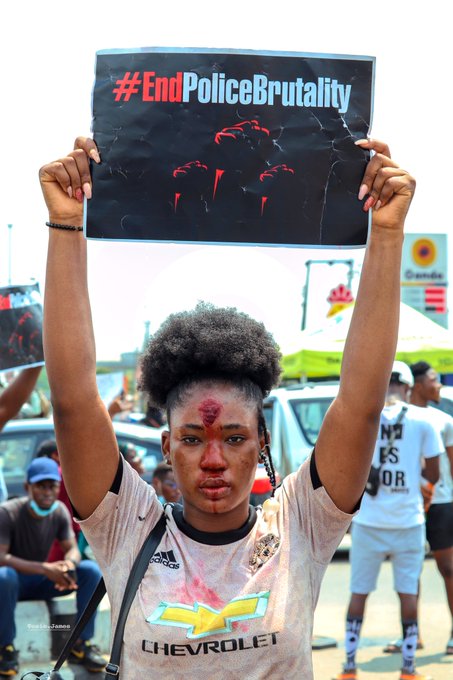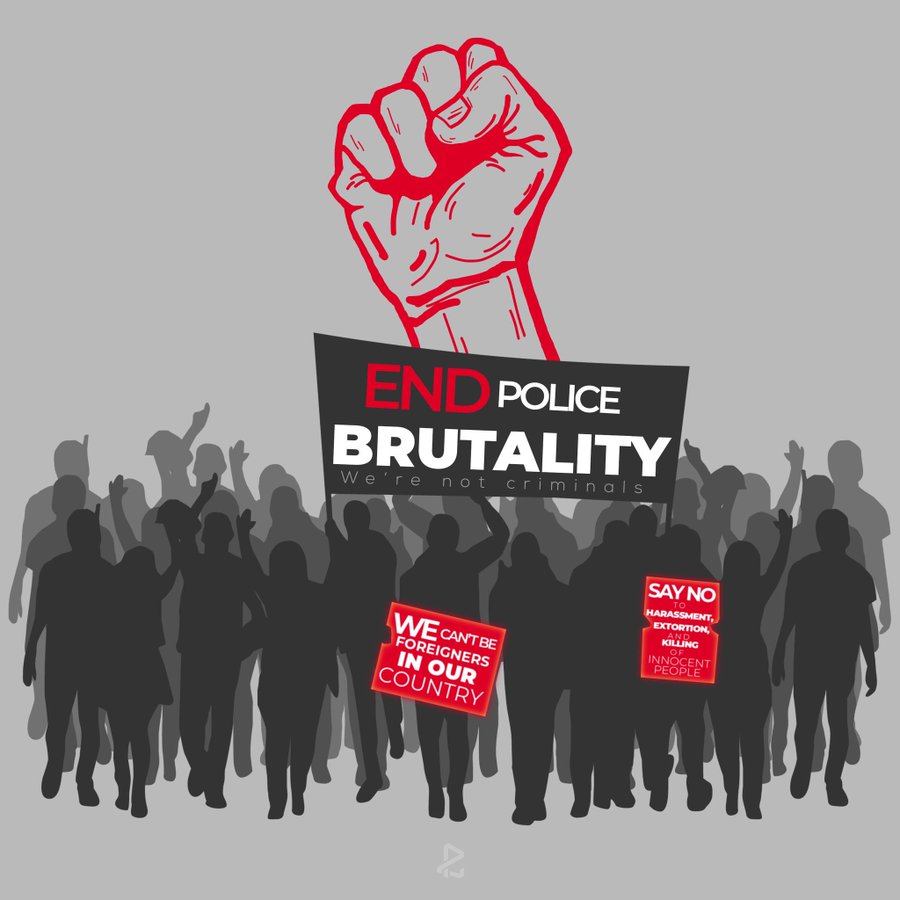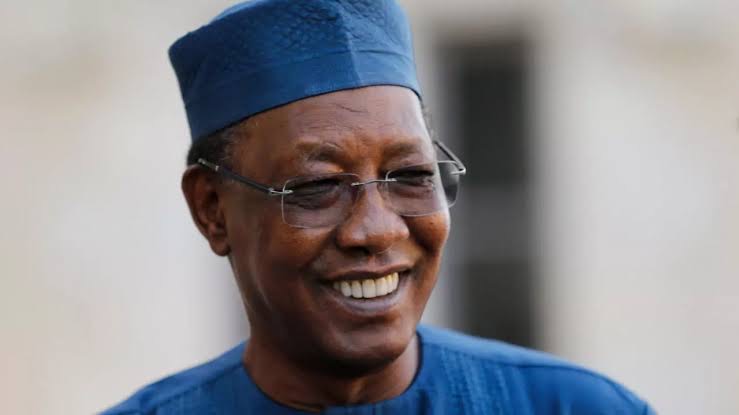How Nigerians Used Social Media To End SARS


Using social media like Twitter and WhatsApp, hashtags and conversations has helped propel protests. In a week-long protest, Nigerians chanted against brutal, unlawful activities of the Police Special Anti-Robbery Squad (SARS) unit. Amplifying the positive sides of social media, Nigerians successfully converged, reinforced, and executed peaceful protests through location sharing on social media, among other strategies. Read below for more on this story!
Similar to events in the United States, Nigerian youths echoed their stand against brutality, by those who should be protecting them. This stand was unmistakably expressed through week-long protests across the country. The protesters claimed to have frightful encounters, or have known someone with such encounters, so protests resulted from fear and tension of the safety of civilians. Here’s how it all transformed into a historical event.
Shared Experiences on Police Brutality
From torture to extortion and extrajudicial killings, the ugly tales of SARS operatives are disheartening. Many times, innocent victims are arrested and forced to pay a certain amount to regain their freedom. Those that cannot afford the bogus bailout spend an unimaginable amount of years in prison. Unfortunately, some never make it out alive to tell their stories. Since the rise of the #EndSARS movement, thousands of Nigerians have taken to social media to share their stories. It is the collective sharing of these stories on social media that gave it much-needed attention. You’ll need a strong heart to read some of them.
https://twitter.com/zikokomag/status/1316675600992612352?s=20
The Story of Chijoke killed by SARS hurts ? #EndSARS https://t.co/35TCKBwtyz
— Sally Suleiman (@is_salsu) October 16, 2020
My name is Halimat Vivian Animashaun, I'm yet another innocent Nigerian citizen and this is my SARS story
Kindly pardon me if I've written it somehow cos I've not even fully recovered from the trauma.
On this fateful night in 2018, they were raiding the area in Mushin where
— Halimat Vivian #HavimmComfyCollections (@halimatvivian) October 15, 2020
You people are finding it difficult to believe that some SARS members rape guys?
Let me not just share this story because some people here will definitely connect the dots.
THEY DO!
Infact, anything you tell me those demons did, they did!
They act with so much impunity!#EndSARS— Makanaki (@DrLotenna) October 16, 2020
Fellow Nigerians,
These are the kinds of messages I wake up to almost every morning since we started #EndSARS.
Almost everyone has an Awkuzu SARS story.
Are you tired of protesting? You could be the next victim or someone you know could be the next. So don't relent.
✊?✊?✊? pic.twitter.com/J9EfEMe2zB
— Aji Bussu Onye Mpiawa azụ ?? (@AfamDeluxo) October 16, 2020
SARS collected her son’s school fees and she’s a widow with four kids??
Please we can’t get tired of speaking up or demanding for better.
Stories like this must fuel us more ???✊?#EndSARS #ENDBADGOVERNANCE #RECONSTRUCTNIGERIA https://t.co/Fxf5vkWQL9— Moji Sensei Delano (@MojiDelanoBlog) October 16, 2020
Protest Strategy

Nigerians used numerous social media platforms to plan and execute their protest to end SARS. First of all, they uploaded recorded videos of police brutality, mostly on Twitter. These video posts raised awareness, and therefore, encouraged the public to abide by security rules. Groups of friends and family then helped share videos and written posts on WhatsApp. Secondly, these posts of police brutality and awareness began trending in group chats. This was possible since related topics became popular among users in the country. As conversations grew, more and more people became committed to finding a solution.
The Nigerian protests were dynamic, therefore, successful execution in one state encouraged an execution in a neighboring state. Millions of retweets and support followed the consistent protest videos uploaded on Twitter. However, protesters met violent roadblocks in some states. Policemen tried to disperse the crowd by shooting tear gas canisters. The repressive actions further infuriated the youths. According to some reports, the police used live rounds resulting in the death of some protesters.
Strength in Numbers

Celebrities and individuals from within and outside the country made donations. These donations significantly helped to feed protesters and also, express support. Actually, these donations and support went as far as handling the medical treatment of wounded protesters. And guess what? some of those protesters returned to the protests right after treatment!
ALSO READ: These Uganda Policemen Show A Powerful Display Of Feminism
It all Paid Off
Perseverance breeds success! Therefore, like every struggle for freedom and peace, the SARS unit got disbanded. On the 11th of October 2020, the Inspector-General of Police, IGP M. A. Adamu, announced the closure of the Special Anti-Robbery Squad. The exciting news went round the country’s social media space. However, they were mixed reactions following the replacement of SARS with SWAT.
Several meetings have been held with: the @SPLawan, @femigbaja, the Chief of Staff to @MuhammaduBuhari, Chairman of the @PoliceServiceC2, the IG of @PoliceNG (IGP), the Executive Secretary of @NHRCNigeria, and governors.
— Prof. Yemi Osinbajo (@ProfOsinbajo) October 16, 2020
The youths echoed their distrust for the government. Clearly doing so through tweets like we can’t keep repeating these lines, and tell your dogs to stand down. Many are skeptical that the new SWAT will just recycle the old officers. Therefore, the problem will still persist. What the youths are demanding is total police reform. For the first time in a long time, Nigerian youths have found their voices. We sincerely hope that the same energy will trickle down to other sectors. Eventually, what we seek is a better Nigeria and Africa at large.







Responses